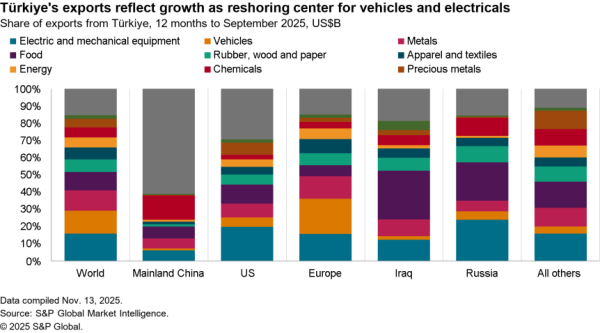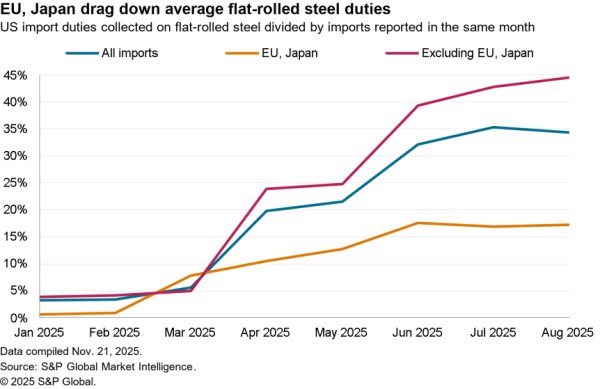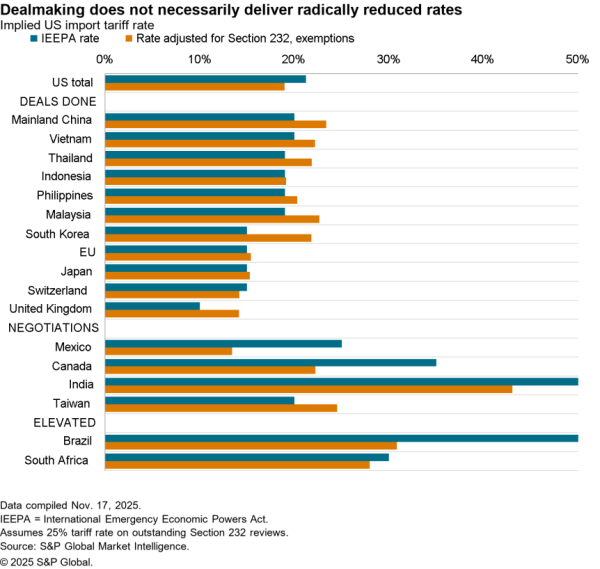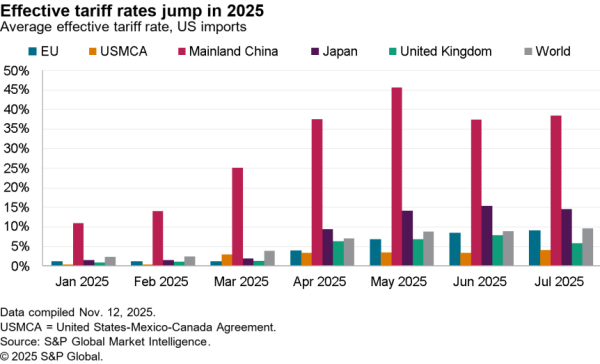U.S. Treasury Secretary Steve Mnuchin has indicated that a broad tax reform could be completed by year end, while House Speaker Paul Ryan has said it is possible before the end of the summer. The critical element for trade policy is whether a include a border-adjustable tax (BAT) is included per Republican policy reported by the Wall Street Journal. This would not allow companies to deduct the cost of imported goods for tax purposes, but would not require them to pay tax on revenues earned on exports.
There is the potential for a shift in supply chain policies resulting from a desire to maintain profits and minimize customer price increases. Adidas CEO Kasper Rorsted has outlined a beliefe that prices may increase. Uniqlo threatened to withdraw from the market. Meanwhile Volvo, General Motors and HP Inc all indicated a combination of price rises, lower demand and lower profit are possible. Panjiva data indicates the five companies are most reliance on China, Indonesia, Mexico and (in Volvo’s case) Europe for their sourcing.
Implementation of a BAT would need to be taken in the context of the broader tax reform. Secretary Mnuchin has indicated that it could be seen as being in violation of WTO rules unless it is combined with changes in interest and depreciation deductibles too.

Source: Panjiva




